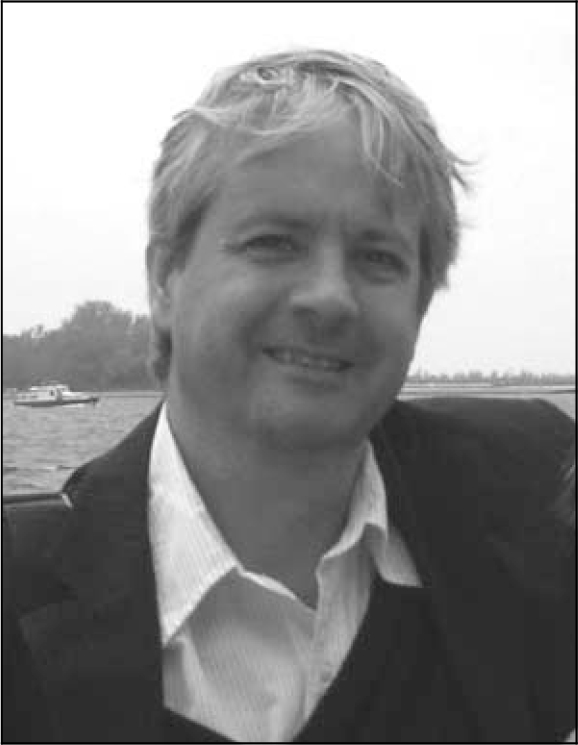Jair Mari is Professor of Psychiatry, Department of Psychiatry, Universidade Federal de São Paulo, Brazil. He trained at Fundação Universitária do ABC, São Paulo, the Civil Servants' Hospital, São Paulo and the Institute of Psychiatry, London. His special interests include psychiatry in primary care, schizophrenia and posttraumatic stress disorder.
If you were not a psychiatrist, what would you do?
Bass player in a rock band if I had the talent. I have performed better in psychiatry and I feel fine.
What has been the greatest impact of your profession on you personally?
The opportunity to know about the world through the narratives of my patients.
Do you feel stigmatised by your profession?
My medical colleagues regard me as a comparatively normal psychiatrist.
What are your interests outside of work?
Mainly music (Mozart, Caetano Veloso, Mana, Cole Porter and Brian Ferry), painting (Schiele, Picasso, Velazquez, Van Gogh), movies (Billy Wilder, Wong Kar Wai, Fellini, Kubrick) and literature (Scott Fitzgerald, Mario Vargas Llosa, Machado de Assis and James Joyce).
Who was your most influential trainer and why?
My most influential training was at the Institute of Psychiatry where I had the privilege of sharing experiences with Paul Williams, Greg Wilkinson and Michael Shepherd. They are all unforgettable but Shepherd is the most unforgettable.
What job gave you the most useful training experience?
The emergency room in Hospital São Paulo, Escola Paulista de Medicina.
Which book has influenced you most?
I loved Patients and Healers in the Context of Culture. An Exploration of the Borderland between Anthropology, Medicine and Psychiatry by Arthur Kleinman (University of California Press, Berkeley). It is a good example of how anthropology and epidemiology can be usefully combined.
What research publication has had the greatest influence on your work?
‘The influence of family and social factors on the course of psychiatric illness’, Vaughn & Leff (British Journal of Psychiatry, 129, 125-137) which was a replication and extension of past work by Brown et al (British Journal of Psychiatry, 121, 241-258). This paper was one of the first to apply a cohort design, showing a possible influence of the family environment (social and cultural factors) in the outcome of schizophrenia.

What part of your work gives you the most satisfaction?
Seeing a student give a good presentation at national and international conferences. Revista Brasileira de Psiquiatria was recently indexed in the ISI Web of Knowledge. This gave our editorial team a lot of satisfaction.
What do you least enjoy?
Political rows in the university. It is hard to be progressive where there are so many anachronisms.
What single change would substantially improve quality of care?
Administration is a major problem in a middle-income country such as Brazil. The challenge is to achieve comprehensive care for patients in a huge country.
What conflict of interest do you encounter most often?
The constant seduction by the pharmaceutical industry, although I acknowledge that things are far more civilised nowadays.
Do you think psychiatry is brainless or mindless?
Psychiatry involves the application of intuition, creativity and good science. Mind and brain have to be in perfect harmony.
How would you entice more medical students into the profession?
By demonstrating to students that we are relatively normal and bright professionals.
What is the most important advice you could offer to a new trainee?
Show respect and authority to your patients. Be as compassionate as you can. Be ethical at all times.
What are the main ethical problems that psychiatrists will face in the future?
Overdiagnosis and the problem of inequality in access to care within society. Those who need more have less and those who have more need less, particularly in Brazil, which is one of the most unequal countries in the world.
How would you improve clinical psychiatric training?
Good practice has to include a good doctor - patient relationship, with critical appraisal and continuing education in order that the best available techniques for diagnosis and treatment are adopted. We need more of a combination of science and art.
How should the role of national bodies such as the Royal College of Psychiatrists/American Psychiatric Association change?
These should play a leading role in extending good practice to different parts of the world.
What is the future for psychotherapy in psychiatry training and practice?
It is important to show the efficacy of different psychotherapeutic interventions. Cognitive therapy is on the rise and can be adopted in many circumstances. Psychotherapy will become shorter, more efficacious and more directed to people who can really benefit from specific techniques.
What single area of psychiatric research should be given priority?
Child and adolescent psychiatry; for example, the early diagnosis of conduct disorders and attention-deficit hyperactivity disorder.
What single area of psychiatric practice is most in need of development?
Molecular psychiatry, neurophysiology and an understanding of how brain and mind work. We are just beginning to understand neurophysiology.



eLetters
No eLetters have been published for this article.